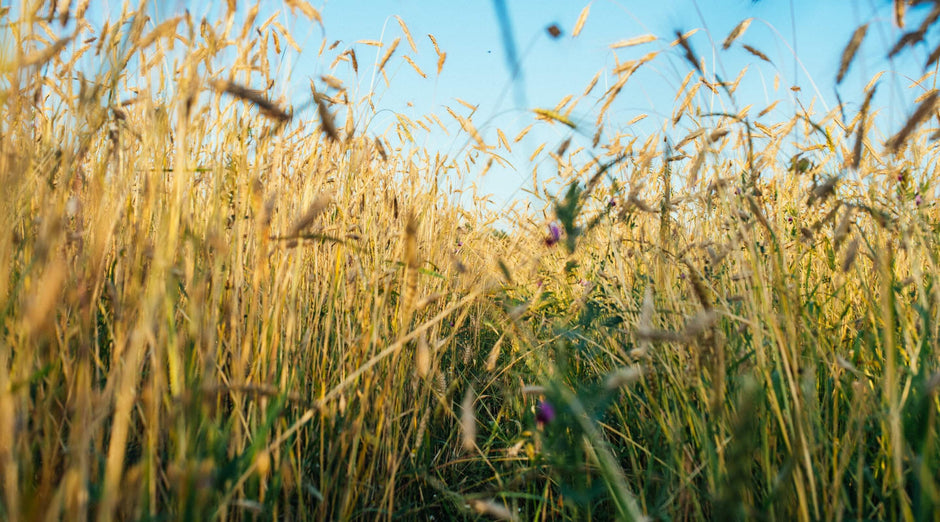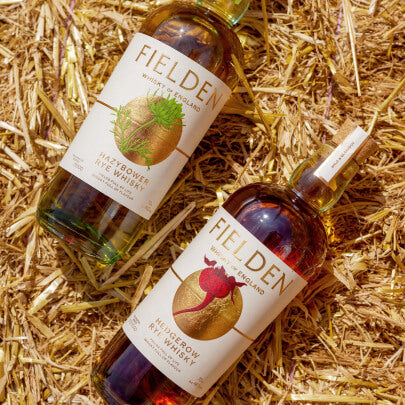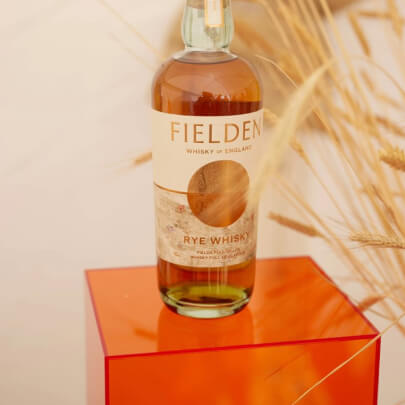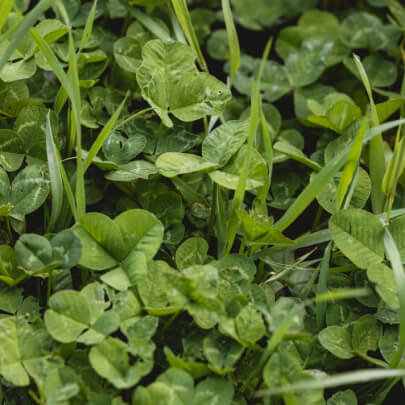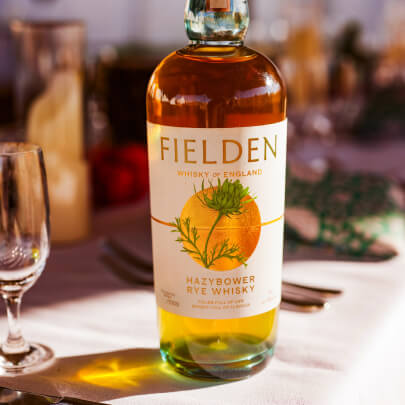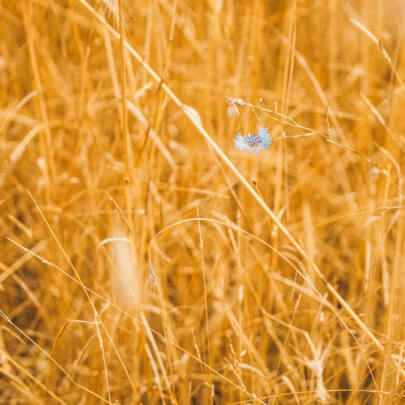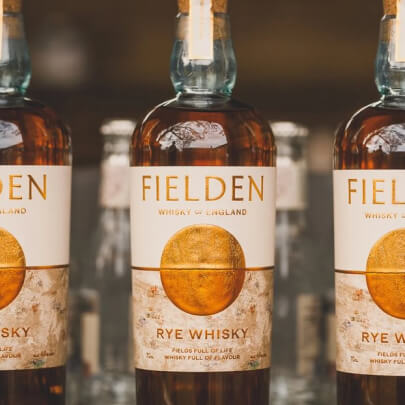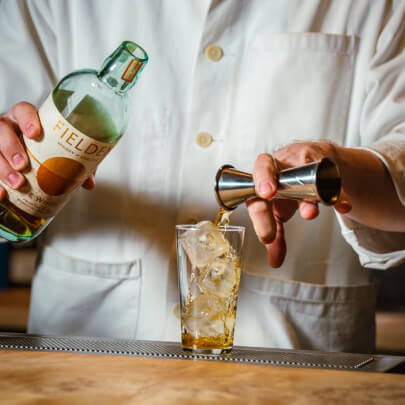Industrial farming prioritises uniformity: the same seed, grown under controlled conditions with chemicals, to maximise immediate productivity. But nature isn’t uniform. It’s a wonderful, wild mix of colour, noise and life. While farming inherently involves shaping nature, we choose to work with it rather than against it. By growing grains that thrive without artificial chemicals, we prioritise soil health, biodiversity, and natural flavour. The result is a more balanced and sustainable relationship with the environment.
HOW WE'RE CHANGING FARMING FOR THE BETTER
To understand Fielden, you need to know what we’re doing in our fields, and why – and how – it’s completely different.
We’re championing regenerative farming, and we're determined to bring England’s fields back to life with diverse grains that thrive without chemicals. For us no herbicides, no pesticides, no fungicides, no fertilisers. There’s no need because we’re working with nature, and not against it. It’s a more sustainable way of farming that’s better for the soil, the water, the wildlife, and the planet.
It’s better for our whisky, too, which is full of flavour. Is it the grains? Is it the magic of nature? Who knows - and honestly, does it matter? It’s a distinctly delicious rye whisky that’s changing farming - field by field, harvest by harvest.
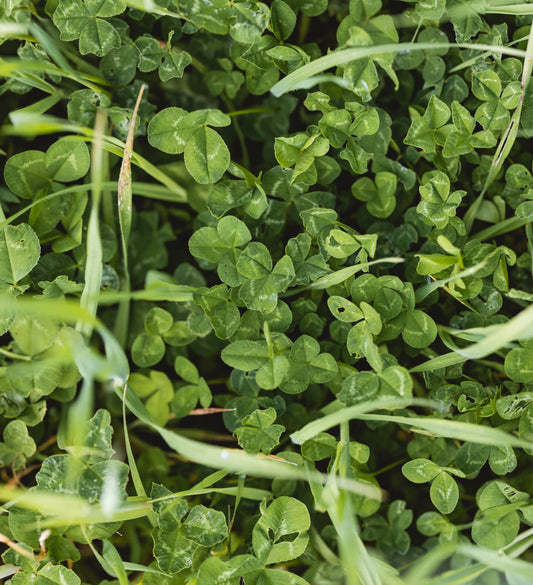
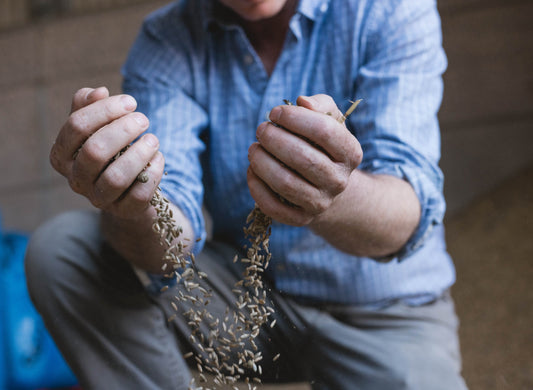
WHAT IS REGENERATIVE FARMING?
People use the phrase ‘regenerative farming’ to mean different things. Here’s what it means to us.
Fielden’s farmers follow a new way of farming: they plant a diverse mix of grains directly into clover. They never use chemicals, and they nurture the soil. This clover-based regenerative grain growing system means there’s food in our fields for more plants, animals and insects to grow and thrive, both above and below ground.
Fielden works with farmers who want to work with nature and be kind to their land. Happy farmers grow fields full of life - and that makes whisky full of flavour.
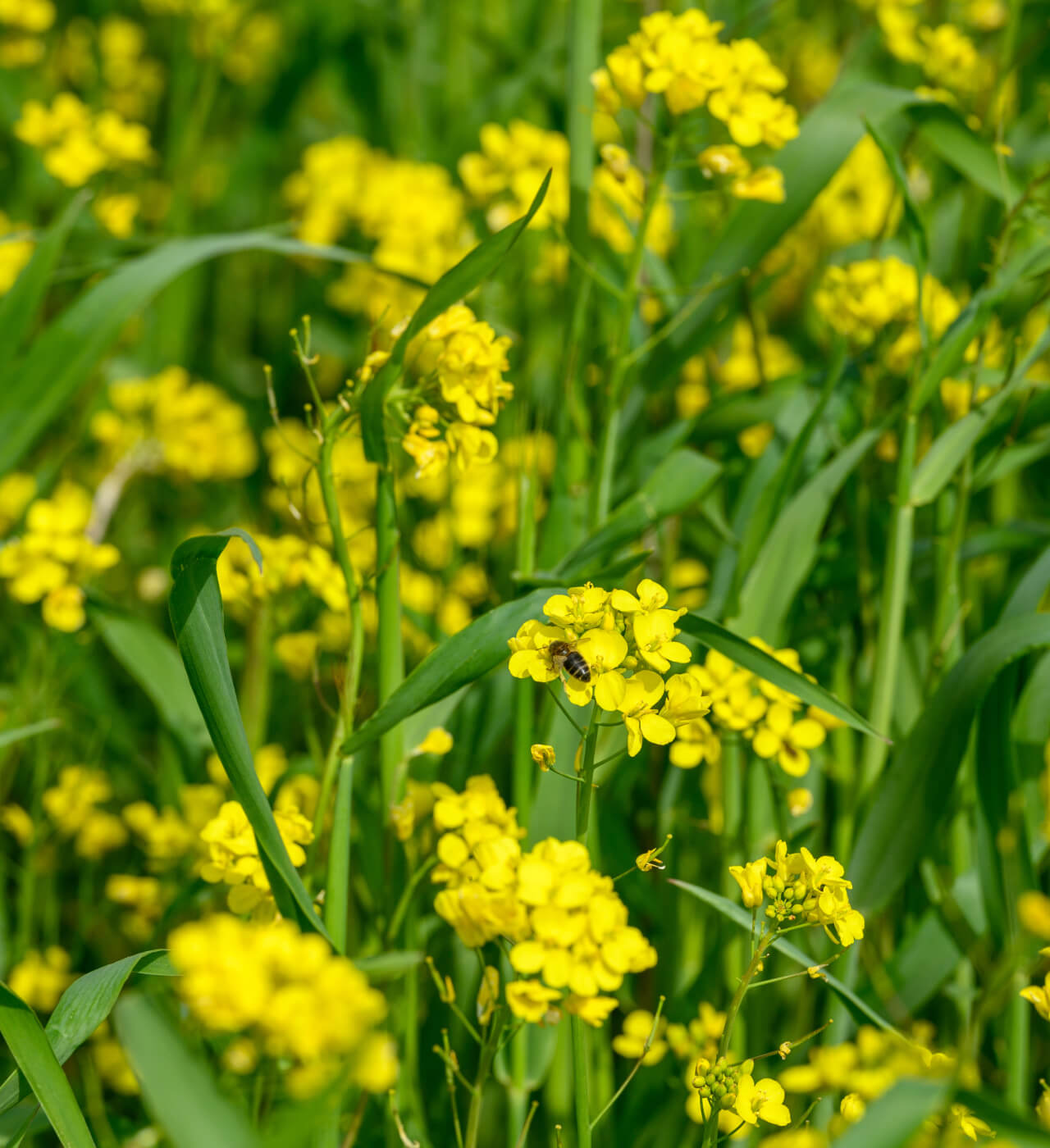
We never, ever use chemicals or artificial fertilisers
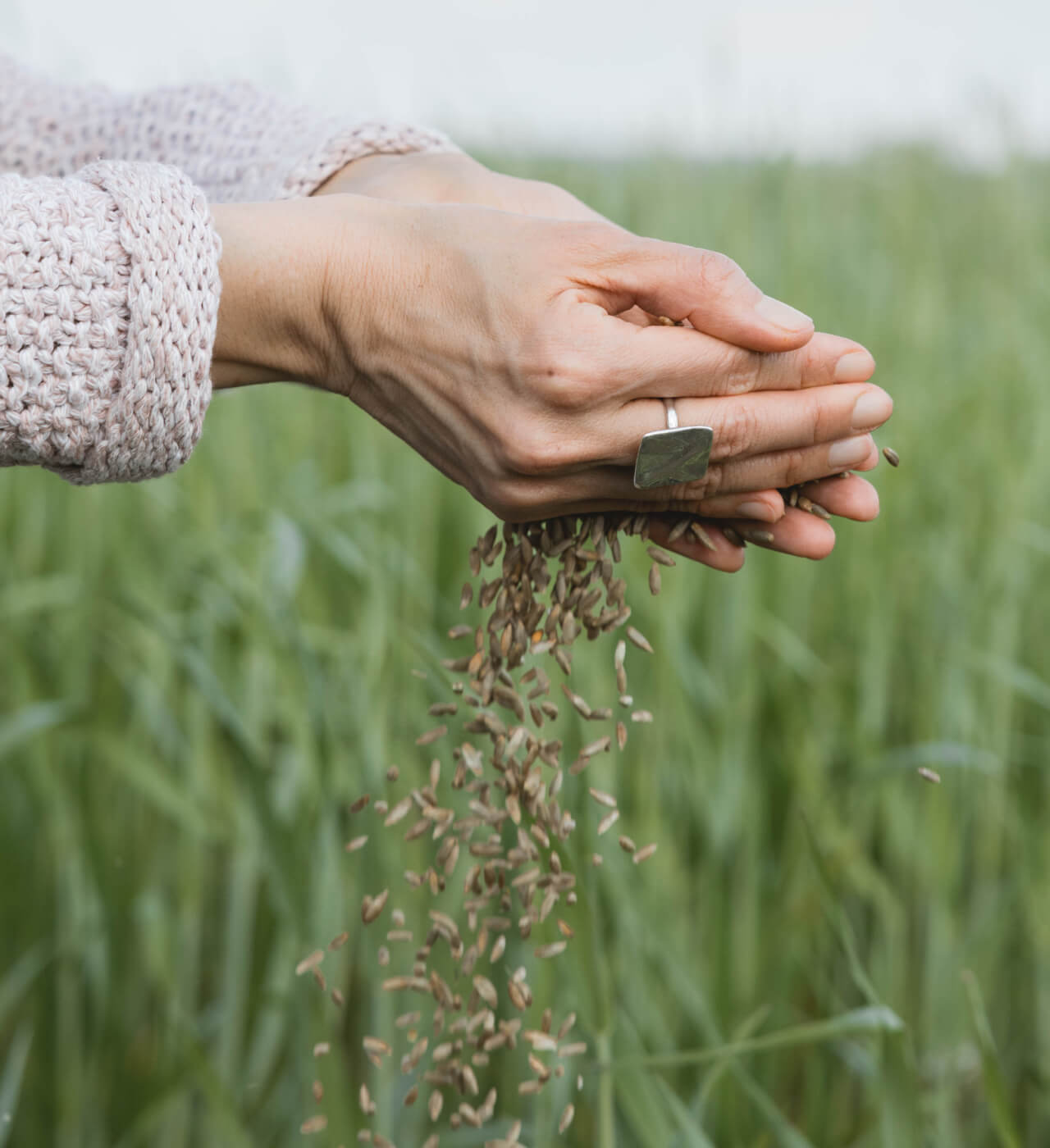
We grow diverse grain populations and source organically
At the heart of our way of farming are diverse populations of grains; we combine heritage varieties, landraces, and crops bred for resilience in low-input systems. The genetic diversity of these populations allows them to adapt to local conditions and become more robust over time. By saving seeds from the best-performing plants each harvest, and incorporating new diverse seeds year on year, we're continuously refining and improving our crops to increase yields, diversity and resilience.
However, achieving full self-sufficiency with these populations requires time to bulk seed stocks. During this transition, we're using certified organic grains alongside our own crops to ensure the integrity of our whisky production.
At the heart of our way of farming are diverse populations of grains; we combine heritage varieties, landraces, and crops bred for resilience in low-input systems. The genetic diversity of these populations allows them to adapt to local conditions and become more robust over time. By saving seeds from the best-performing plants each harvest, and incorporating new diverse seeds year on year, we're continuously refining and improving our crops to increase yields, diversity and resilience.
However, achieving full self-sufficiency with these populations requires time to bulk seed stocks. During this transition, we're using certified organic grains alongside our own crops to ensure the integrity of our whisky production.
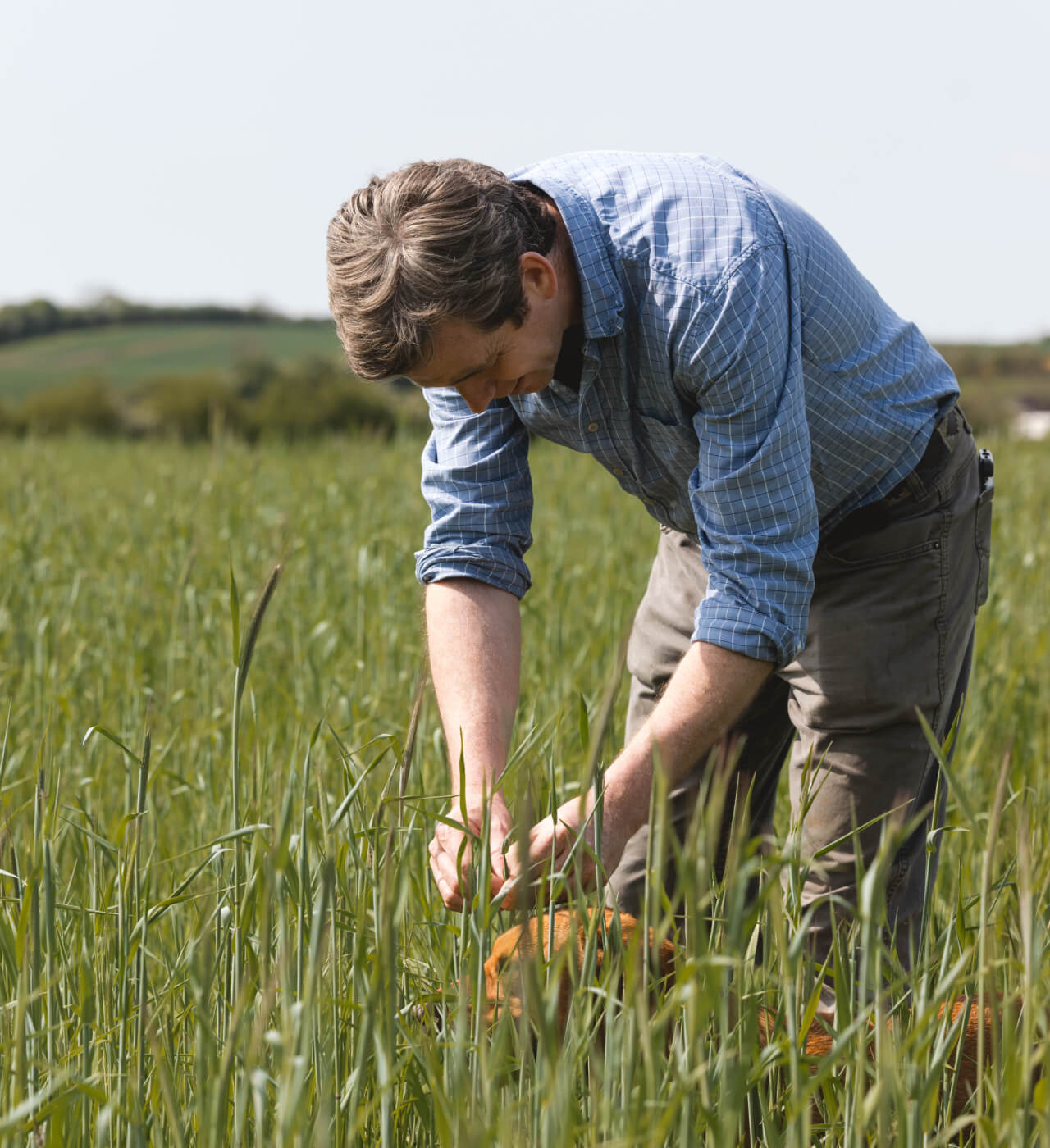
We nurture the soil
Healthy soil is the foundation of regenerative farming. Sadly, much of the world's soil has been degraded through intensive agriculture. We exist to change that. We try to avoid disrupting soil ecosystems, and instead rely on natural processes to maintain soil fertility. Organic matter, such as straw, is left on the fields after harvest to decompose, gradually enriching the soil and providing nutrients for future crops. We never use chemicals on our soil.
Healthy soil is the foundation of regenerative farming. Sadly, much of the world's soil has been degraded through intensive agriculture. We exist to change that. We try to avoid disrupting soil ecosystems, and instead rely on natural processes to maintain soil fertility. Organic matter, such as straw, is left on the fields after harvest to decompose, gradually enriching the soil and providing nutrients for future crops. We never use chemicals on our soil.
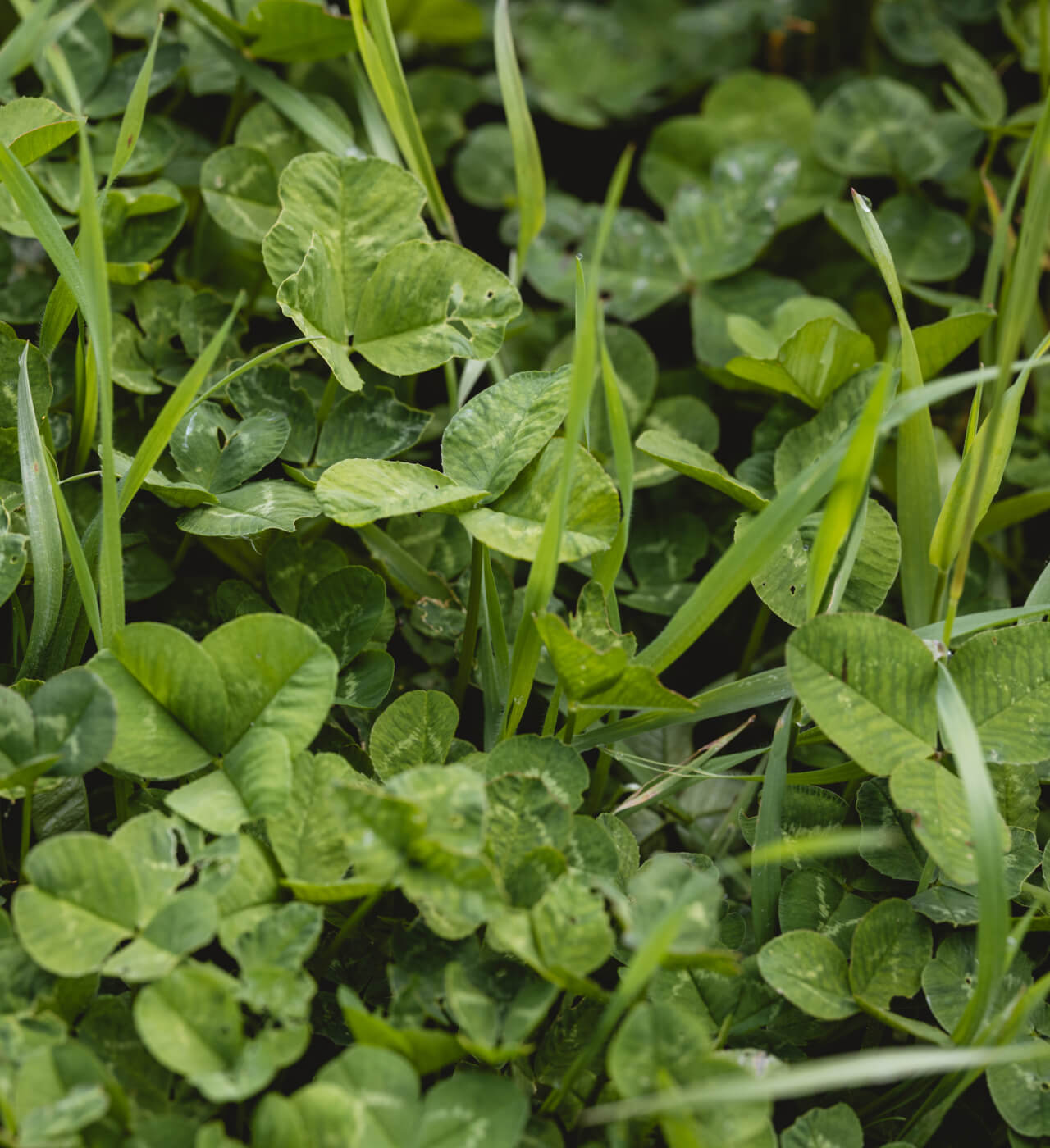
We plant an understory of clover - a natural fertiliser
Clover further supports soil health by naturally fixing nitrogen, reducing the need for artificial fertilisers. This living understory also helps protect the soil from erosion, retains moisture, and provides a habitat for insects, bees and wildlife in our fields.
Clover further supports soil health by naturally fixing nitrogen, reducing the need for artificial fertilisers. This living understory also helps protect the soil from erosion, retains moisture, and provides a habitat for insects, bees and wildlife in our fields.
